Living Well in the Community
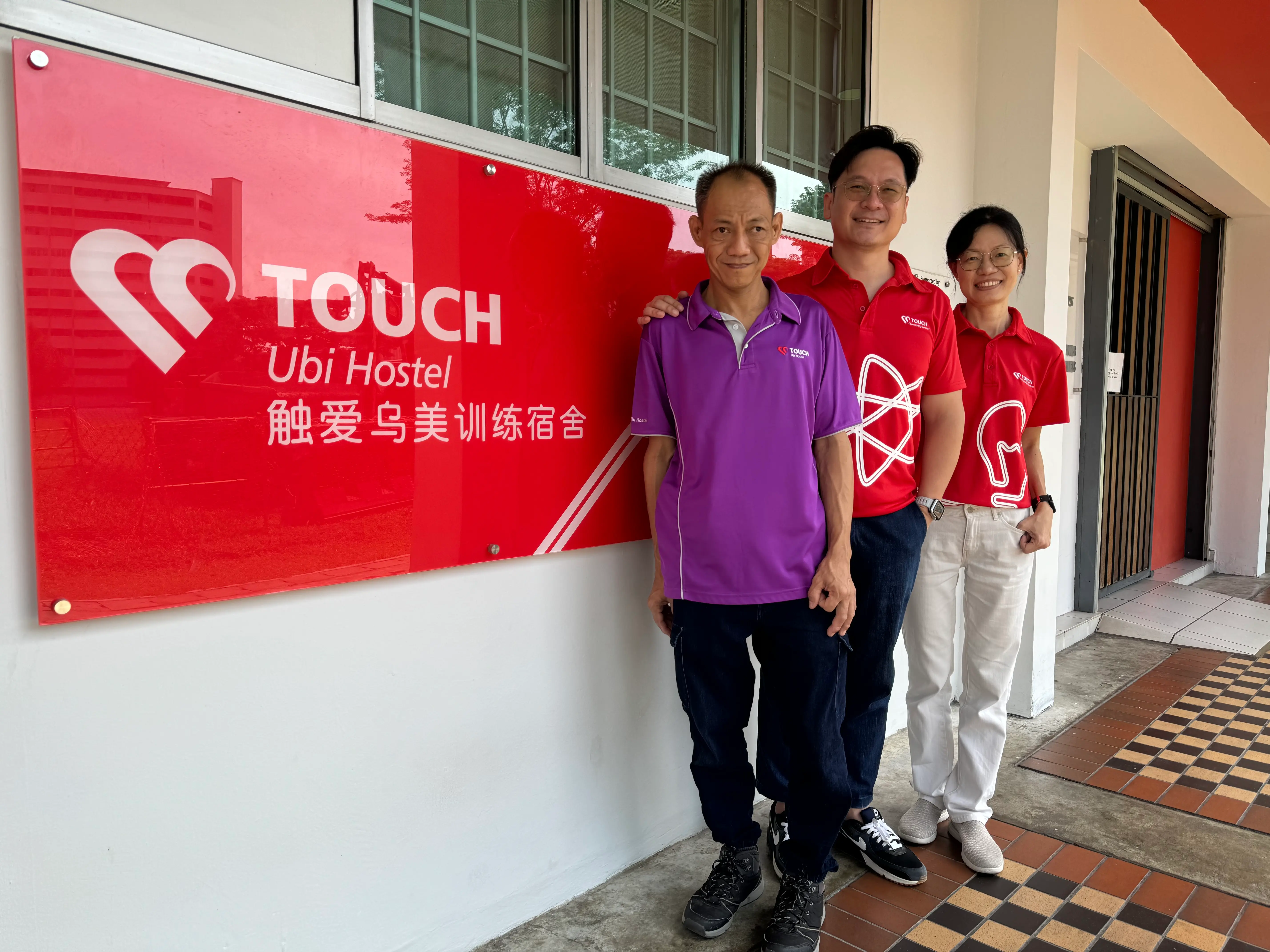
Caption: From left (Trainee Chong Meng, lifeskills coach Mr Amos Kang and Group Head of TOUCH Special Needs Group Ms Ang Chiew Geok).
Mr Fong Chong Meng was referred to TOUCH Ubi Hostel (TUH), a stay-in residential programme for adults with intellectual disabilities, after he was spotted loitering in his neighbourhood two decades ago.
He was 31 then and lived with his father in a three-room flat in Upper Cross Street. Unemployed and often bullied by others, he had no close relatives and struggled to take care of himself. His situation deteriorated further after his father passed on.
Learning to Be Independent
TUH marked a turning point for Chong Meng as he gradually learnt to be independent over the years. Through the guidance of lifeskills coaches, He was equipped with competency skills that help him to relate with others, do housework, cook meals, manage money, see a doctor when he sick, and travel on public transport.
“At TUH, we help trainees like Chong Meng build confidence to navigate their everyday life independently, secure a job and maintain it. Being situated in the community provides excellent training platforms for trainees to experience communal living in a natural environment. This helps them to apply life skills taught in a real-life setting as they interact with others in the community,” says Ms Ang Chiew Geok, Group Head, TOUCH Special Needs Group.
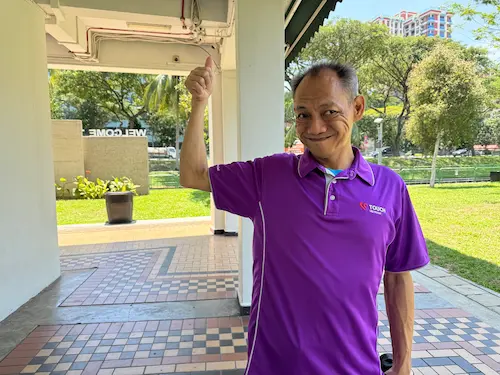
Caption: Chong Meng enjoys living in a supportive environment like TUH.
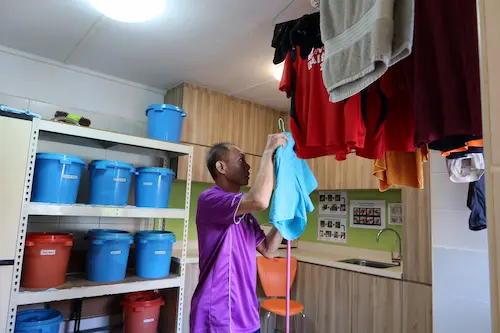
Caption: Equipped with independent living skills at TUH.
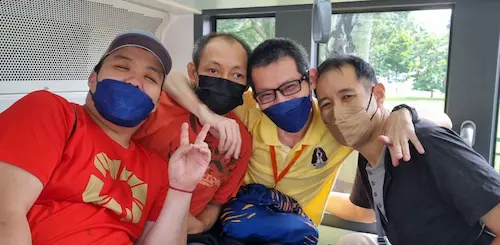
Caption: Chong Meng (second from right) enjoying the company of friends from TUH.
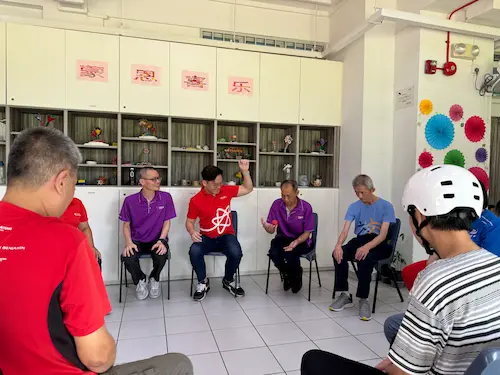
Caption: TUH has provided a nurturing environment for trainees like Chong Meng (third from right).
Now at 51, he has achieved numerous milestones in life, including working as a packer for the same company for over a decade, building lasting friendships, volunteering regularly, and taking care of himself at home during the weekends.
“Equipping our trainees for independent living is a long process. Our goal is to help them improve their life skills and job readiness skills. We help them maximise their potential and facilitate a seamless return to the community, reducing their reliance on caregivers,” says Ms Ang, adding that TUH intentionally creates learning opportunities for trainees to step out confidently to buy lunch at the coffeeshop and run errands.
“I am happy to live here at TUH because I can make many new friends. I can now wash my clothes, sweep and mop the floor, and clean the toilet,” says Chong Meng happily. “I also enjoy spending time with my best friend Guang Meng who plays games with me.”
A Collective Effort
To help trainees ease into independent living in the community, TUH also actively engages community partners in the neighbourhood, such as the coffeeshop stall holders, GPs, a dentist, and supermarket and store holders, to create greater awareness on how to communicate with persons with intellectual disabilities.
“During Chinese New Year, our trainees would specially design festive cards to thank the various store owners and GPs to build familiarity and goodwill,” shares Ms Ang, who also believes in roping in residents to volunteer.
Volunteers like Ms Reanne Ubonratyakab, a former hairstylist, has chipped in to help by providing trainees with a haircut twice a month. The 47-year-old resident, who lives a few blocks away, was initially worried if she could communicate with them. “I was surprised to find them well-mannered and polite. They will always thank me when they like their new haircut,” says Ms Reanne with a smile.
Ban Main coffeeshop stall holder Mdm Su Hai Wei also does her part for the community. “I always keep a lookout for the trainees. When they do not have enough money, I still let them buy their food. Sometimes, I will also give them a discount. It’s not a problem for me,” says Mdm Su. “When they see me at the bus stop, they will greet me and call me ‘aunty’”.
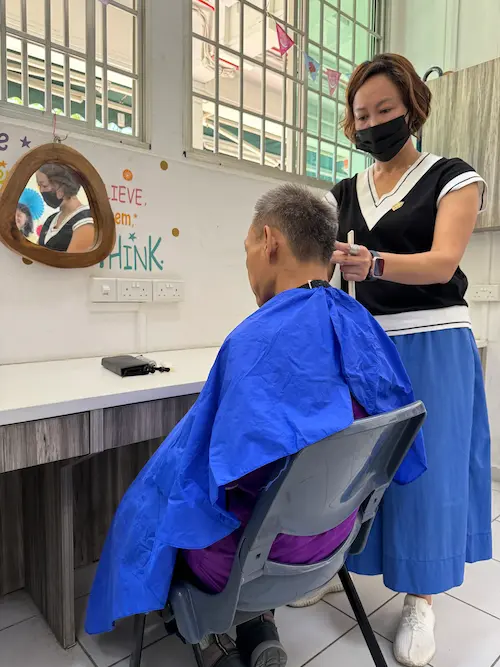
Caption: Volunteering has enabled volunteers like Ms Reanne to dispel any misconceptions about people with intellectual disabilities.
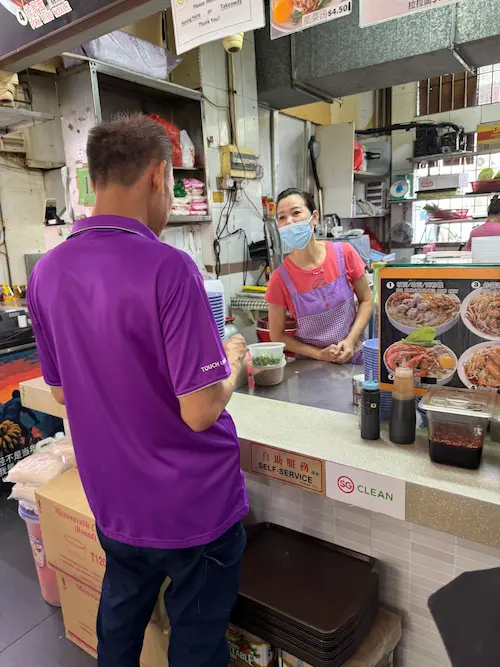
Caption: Hawker Mdm Su Hai Wei enjoys interacting with trainees like Chong Meng.
Everyone has a part to play to build a more inclusive environment for persons with intellectual disabilities and help them achieve a better quality of life. For more information on TUH, please click here.
---
About TOUCH Special Needs Group TOUCH Special Needs Group (TSNG), under TOUCH Community Services, believes that every person with disabilities is valuable and aims to empower them to gain independence, social inclusion, and maximise their potential to be contributing members of society. Through two Day Activity Centres, a dedicated service for the Deaf and an Adult Disability Hostel, TSNG imparts life skills (daily living, community living, personal, and social skills), as well as pre-employment skills to trainees with intellectual disabilities or are deaf. TSNG also runs TOUCH SpecialCrafts, a programme which develops and showcases trainees’ talents and skills in the visual arts and offers employment for those with high potential. People with disabilities, especially those who are not enrolled in any disability services, can also receive support through the Community Support Service, which aims to empower them to grow in independence and enjoy greater social integration. They and their caregivers can also receive further support at home through RAISE (Resilience and Abilities for Independence through Support and Empowerment), a pilot initiative by TOUCH and supported by SG Enable.
Story published in 2024.


